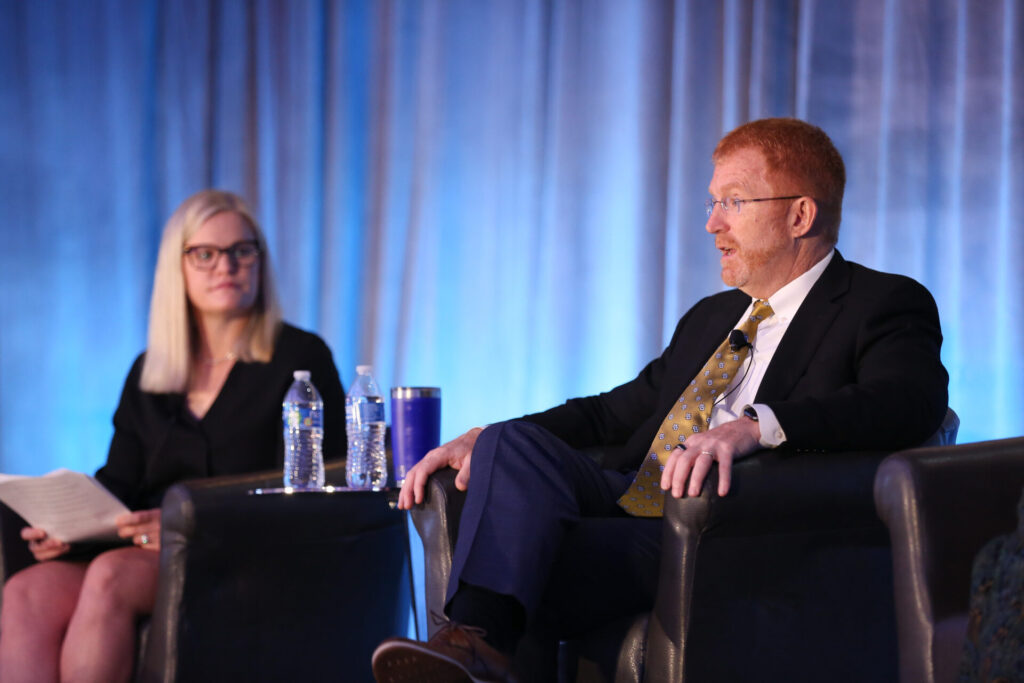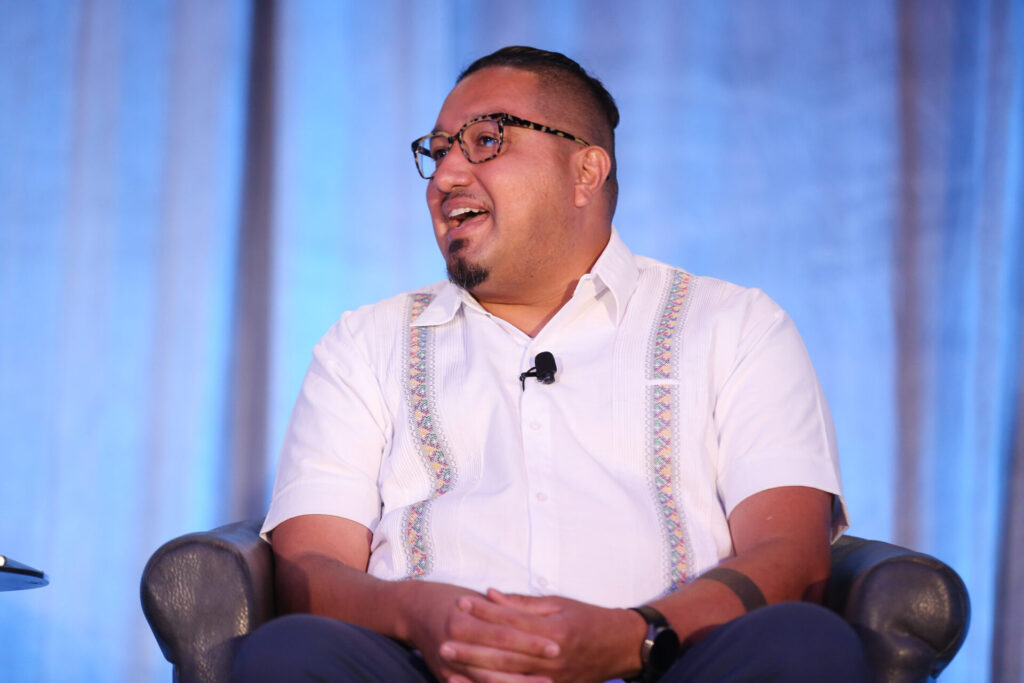Building Strong College-to-Career Pathways for TRIO Students: Insights from Industry Experts
September 13, 2023 — by Maura Casey

It isn’t enough for TRIO students to have a successful experience in college. They need to be able to connect their educational experience with a thriving career, said panelists at a COE conference plenary session on Sept. 12.
The question is, how can TRIO professionals proactively help students be successful in their careers following college graduation.
A recent Harvard study showed that 40 percent of college graduates had gone into jobs that don’t require a bachelor’s degree, said Jean Rhodes, the Frank L. Boyden Professor of Psychology and Director of the Center for Evidence-based Mentoring at the University of Massachusetts, Boston. “The research is really an eye-opener and really draws attention to the need for better college-to-career pipelines. We need to do much more, according to the report, to bridge that pathway from the very beginning of a student’s college journey.”
Darren Jackson, founder and chair of All In Milwaukee, spoke about his surprise at learning that a high school program giving students high-quality work experiences one day did not translate into high college graduation rates. The students in the high school program graduated from college at only a 36 percent rate. “We said, how could that be? We realized there wasn’t navigation [in college] to help them finish the journey.”
Students participating in All In Milwaukee, which helps minority, first-generation students and low-income students graduate from college, have a graduation rate of 91 percent. “It wasn’t practices, procedures, or policies. It was personal relationships,” he said. Students are assigned a coach to help them through college. “The goal has become not simply to [help them] transition into careers, but how we build the leaders of the future,” Jackson said.
Jackson also pointed out that colleges must ask what they are doing at the college level to build a pipeline of diverse candidates. He cited a coming nursing shortage in America of hundreds of thousands, “and yet when you look at the diversity of our nurses, I know in Wisconsin the diversity of nurses is two to three percent. Which is an abject failure.”

Public and private sector employers also play a pivotol role in ensuring students’ ultimate success. “Part of the practice needs to be not only wrap-around services on the participant student side, but there also needs to be some sort of diversity and change at the employer side,” said Miguel Cambray, Vice President of Global Philanthropy at JPMorgan Chase. Cambray said he grew up in extreme poverty on Chicago’s south side.
“Mentoring really works, but it is unevenly distributed,” said Rhodes. “Left to its own devices, it will produce inequality. What works is almost the hotel system, the concierge, having one person that opens the doors that points you in the right direction. We can scale that support through peer mentoring, which is inexpensive and replenishable.”
Rhodes said that successful mentoring has to be goal-focused, and when it targets goals, it is two to three times more successful than programs that do not. In addition, the mentor has to be well-trained, which requires more than the one hour of training that most mentoring programs offer. “We should be thinking about mentors as a paraprofessional workforce that we can shift tasks to,” Rhodes said. She began a platform called MentorPRO that relies on evidence-based practices to improve the impact of mentor relationships.
“I would challenge this group to go back to your universities and ask different questions,” said Jackson. One of his program’s partners, the University of Wisconsin at Madison, had a robust program in accounting, but fewer than 10 of the graduates of one class were students of color. With accounting, he noted, the degree went from four years to five, and it might have become far less affordable for that reason. Press for change at the institutional level, he urged. “Look at your nurses, your STEM majors, and then ask what are the roadblocks we are putting up?”
More News & Impact
-
Blog
Balancing Acts: 2024 Wolanin Intern and Mother of Four Recalls Her Journey to Capitol Hill
by Ni’Aisha Banks
-
Blog
Demystifying Graduate School: A Guide for First-Gen BIPOC and Nontraditional Students
by Yvette Martinez-Vu and Miroslava Chavez-Garcia
-
Blog
Empowering Excellence: A TRIO Program’s Journey to Streamlined Success with empower™
by Terrance L. Hamm
-
Blog
Unleashing the Roar: A STEAM Symposium in Celebration of the Jurassic Park 30th Anniversary
by Trauvello Stevenson
-
Blog
Breaking Barriers in Finance: The Impact of TRIO on Student Support Services Alumna Ashley Thomas
by Holly Hexter, Neve Dole
-
Blog
Research Reveals Ways to Improve Mental Health Support for First-Generation Students
by Holly Hexter
-
Blog
Mason Award and TRIO Family Award Winners Celebrate Lives Changed for the Better
by Maura Casey
-